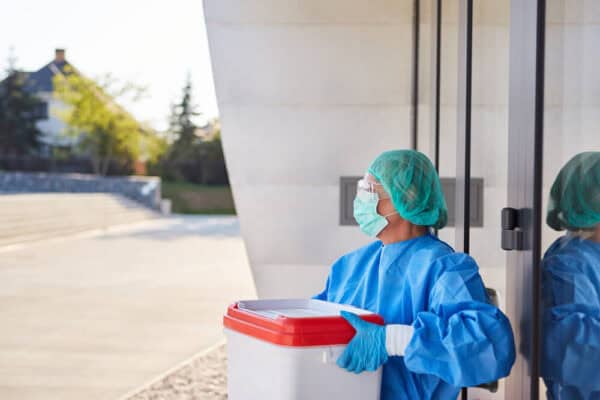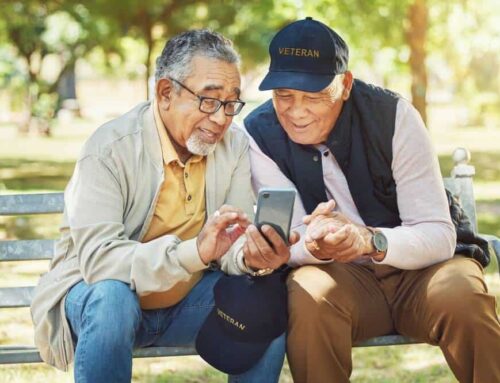Are you interested in being an organ donor? Organ donation is the process of giving an organ or a part of an organ to another person who needs a transplant. Organ donations can save lives and improve the quality of life for recipients suffering from organ failure or severe illness. However, even though there are more than 100,000 people in the U.S. on the national transplantation waiting list, some people are still hesitant to donate organs.
Here’s how organ donation and transplantation work—from the perspective of a donor and the donor’s family.
Table of Contents
What You Need to Know About Being an Organ or Tissue Donor
- Organ donation involves giving an organ or part of an organ to someone in need of a transplant, significantly improving or saving lives, yet many people remain hesitant to donate.
- Donations can come from living donors, who can donate kidneys, parts of the liver, lung, or pancreas, or from deceased donors, whose organs are harvested after being declared brain dead.
- Donors can register through national registries or when renewing their driver’s license. Organizations like UNOS manage the matching process based on medical evaluations and urgency.
- While organ transplants can greatly enhance recipients’ lives, there is a significant shortage of available organs. Transplants can also face rejection by the recipient’s body, requiring careful ongoing medical care.
How Organ Donations Work
There are two options for organ procurement:
- A living donation or a deceased donation.
- A living person can donate a kidney, part of the liver, lung, or pancreas.
Living donors can be relatives, friends, or even altruistic strangers.
However, organs are also harvested from a person who has been declared brain dead but is kept on life support to maintain organ function. This type of donation can include organs like the heart, kidneys, lungs, liver, pancreas, and intestines. Besides vital organs, you can also register for eye and tissue donation.
Registration and Consent for Organ Donation
Individuals can register as organ donors through the National Donate Life Registry or when renewing a driver’s license. Consent can be provided by the donor (through registration) or by their family if the individual had not registered their intent to donate.
Matching Donors and Recipients
Both donors and recipients undergo rigorous medical evaluations to determine compatibility, including blood type, body size, tissue type, and overall health. Organizations like the United Network for Organ Sharing (UNOS) in the U.S. manage organ matching, prioritizing based on medical urgency, compatibility, and time on the national transplant waiting list.
Transplant Surgery
For deceased donors, organs are surgically removed and transported to the organ transplant center. Living donors undergo surgery to donate the organ.
Benefits and Challenges
Benefits
Organ transplants can save lives, particularly for patients with end-stage organ failure. In addition, transplants can significantly improve the quality of life for recipients, enabling them to lead more active and fulfilling lives.
Challenges
There is a significant shortage of available organs in the transplantation network compared to the number of patients on the waiting list. Bodies of transplant recipients may reject the transplanted organ, requiring careful management and ongoing medical care.
How to Become an Organ Donor
Do you like the idea of being able to save and improve lives after you are gone? Or you may be interested in living donations. Signing up to become an organ donor is more straightforward than you might think.
Step 1: Sign up through your state’s registry or in person at your local motor vehicle department.
Step 2: Let your family and loved ones know about your decision to be an organ donor. Consider writing down your desires and including your willingness to be a donor with your end-of-life wishes.
Step 3: Carry an organ donor card.
Organ donation is a critical and life-saving process involving voluntary giving of organs to those in need. By understanding how it works and considering becoming an organ and tissue donor, individuals can contribute to saving lives and improving health outcomes for many people.
It’s important to note that organ donation has no bearing on your ability to have an open-casket funeral (if you prefer burial) or to be cremated.
If you are in the process of organizing your end-of-life wishes, consider purchasing a cremation plan with the Philadelphia Cremation Society. Our pre-planned options will enable you to save money, define your wishes, and arrange your desired services. There are no hidden fees when you purchase a direct cremation package from the Philadelphia Cremation Society. Please fill out the contact form on our website to learn more.






